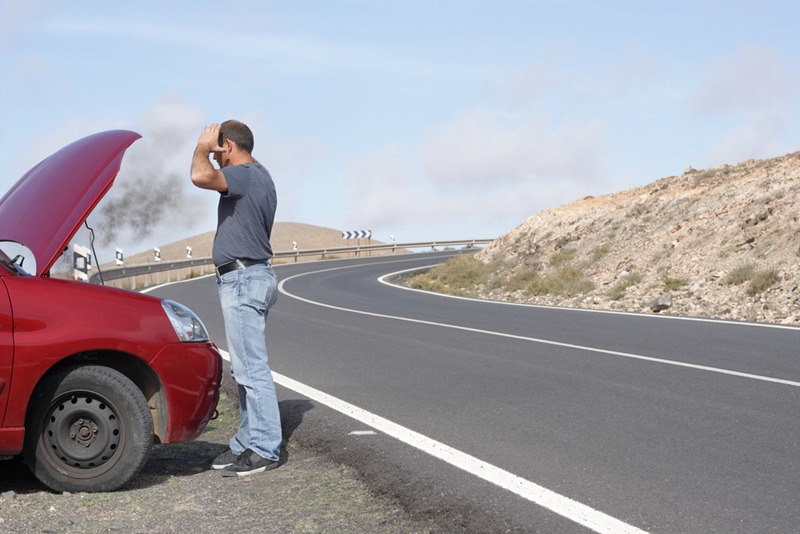Summer is rapidly approaching, making it hard to keep your mind from wandering to plans for all the warm, sunny days ahead. Once the kids are out of school for the season, you'll be able to take some time off for a well-deserved family vacation. It's a great chance to have a break, recharge and build lasting memories that you can all treasure for years to come.
Family road trips can be great adventures to embark on this summer. Hitting the road together allows you more freedom and flexibility with your itinerary. Unlike trains or airplanes, cars let you take a spontaneous detour to check out an amazing road side attraction, sleep in a little extra some mornings or quickly adapt your plans if any problems arise. They may also prove to be a more affordable way to vacation, let your family bond more in the shared space of the vehicle and provide easier access to explore new areas.
Road trips require a good amount of planning, however. You want to be prepared to ensure you have a fun, safe trip and don't end up stranded in case of an emergency.
That's where travel insurance comes in, even during domestic vacations. While you may know to enroll in a travel insurance plan before you cross the border or fly overseas, you shouldn't overlook the ways you need to be covered when you're staying within Canada, too.
Gaps in provincial plan coverage
When you already have a health plan in place, you may think it provides you the same amount of coverage anywhere in the country. Unfortunately, too many families learn each year that this isn't always true. CTV News reported that while many provinces have reciprocal agreement plans for covering medical costs, there are variations in each contract. What has you covered in Alberta may be an out-of-pocket cost in Ontario.
"If a medical service is priced higher where you're vacationing, you have to cover the difference yourself."
If someone in your family gets sick or injured while away from home, you certainly don't want to forgo getting them the immediate treatment that they need. Their health could depend on getting to the nearest hospital as quickly as possible. But then you may be shocked to learn what kind of hidden costs can hit you. Air ambulances, for example, are typically run by private companies and fall out of the range of your provincial health coverage. You could be looking at a bill for tens of thousands of dollars if someone falls and breaks a bone on a hiking trail and can only be reached with an air evacuation.
The Financial Post added that coverage in the province you're visiting may only be good for the amount it would be if you were at home - that means if a medical service is priced higher where you're vacationing, you have to cover the difference yourself.
How travel insurance protects your family
Before you set out on the road to another location, be sure to research how your coverage will differ - not just at your final destination, but in any other provinces you may pass through on the way. Being informed helps save you from a nasty surprise when a hefty medical bill comes to your home after you return.
You can prevent the hassle of calculating exactly which events you're covered for by purchasing your own travel insurance plan, like the GMS TravelStar® Travel Insurance. Such a plan keeps you protected in the event of a pricey medical emergency.
It can also allow you to recuperate lost costs if you have to cancel your trip and lose out on deposits or prepaid activities. In the event that you need to cut your trip short, it can offset the costs of last-minute accommodations you have to set up.
 Don't get caught unprepared in case of an emergency on the road.
Don't get caught unprepared in case of an emergency on the road.
Staying safe on the road
While a good travel insurance plan will help protect you from high medical costs or the cost of replacing a lost bag or driver's licence, there are other things to consider when making safe road trip plans:
- Be sure that your car is in good shape. Get it inspected, replace the oil and make sure the brakes and lights work properly.
- Keep an emergency kit in your vehicle. This should include a basic first aid kit, extra water bottles, flash lights, road flares, jumper cables and a spare tire.
- Stay rested. Don't drive if you're overly tired. Stop and rest if you you're having a hard time focusing on the road or feel yourself nodding off.
- Have emergency contacts. Know who you need to call if anything goes wrong on your trip, like anyone who would need to be notified back home, or the emergency services for your destination.
- Bring spare chargers. Have a car charger for your cell phone, or consider purchasing a SAT phone so you can reach emergency services from wherever you are if you need them.
Having an exciting summer adventure with the family is a great way to take a vacation, but you want to make sure you're setting yourself up for fun and not for disaster. With a little preplanning, you can ensure everyone has a safe and memorable time on the road together.